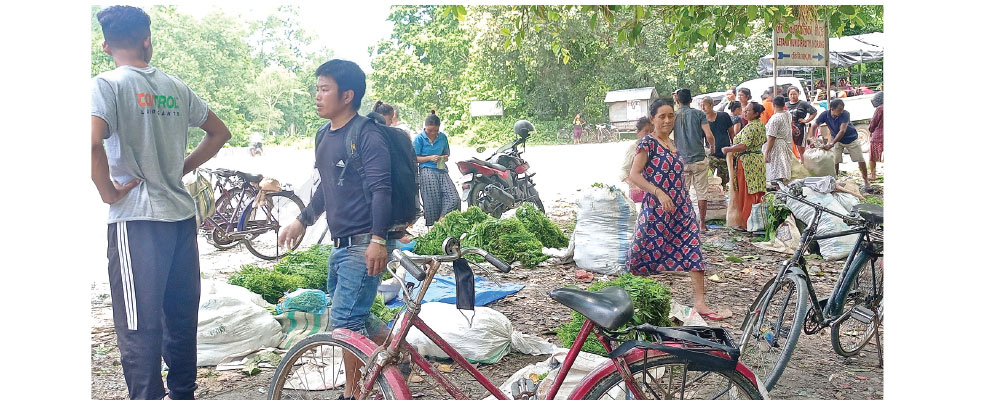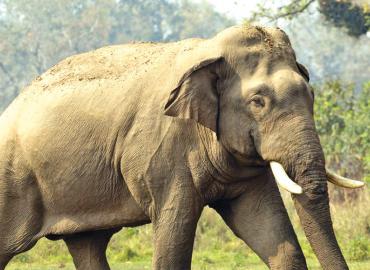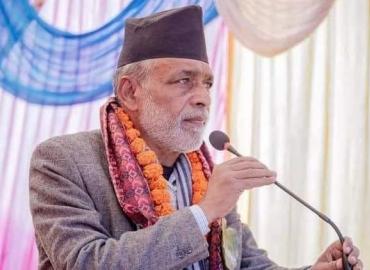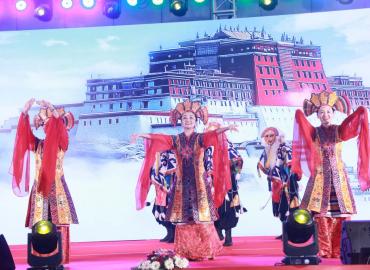Urlabari, July 18: Fiddlehead Fern (Niguro), which is cooked as vegetable in the kitchens of both the poor and rich people, has become a reliable source of livelihood for thousands of families in Morang district.
As the monsoon started a bit late this year, the locals began collecting the ferns only from the first week of Asar. In the past, they used to enter the forest to collect the greens from Baisakh (May).
The farmers do not have to manage fertiliser and irrigation for the production of the fern. It grows itself. What they need to do is go and collect it and make it a good source of income, especially those living near the East-West Highway in Morang.
From small children to old citizens, all can make money by selling it.
Prem Bahadur Thami of Kanepokhari Rural Municipality-7, said, “I sell niguro worth Rs. 500- Rs. 600 a day. My wife also helps me when she has leisure.”
They enter the forest in the early morning every day carrying baskets and lunch. By 9 o'clock, they collect niguro worth Rs. 500 to Rs. 600 and sell it to the wholesalers.
Thami, 33, said, “If I sell it myself, I earn a profit of Rs. 1,000. However, there will be a problem if there is no sale, so I will give it to the wholesaler.”
Abisha Subedi, who passed the SEE this year, said, “Until the results of the Secondary Education Examination (SEE) was made public, I searched and sold niguro earning Rs. 200 to Rs. 300 daily.”
Stating that she collected 10 to 15 bundles of niguro throughout the morning and sold them, Subedi said that there is a competition in finding niguro as many people are picking the niguro all over the forest.
The niguro, known as organic vegetable, not only goes to the local markets but also reaches Kathmandu, Biratnagar and Pokhara.
Asha Suyal of Kanepokhari -7, has been supporting her family by selling niguro for the past two years.
She said, “I pick 45 bundles of niguro daily and sell them to wholesalers from Damak at the rate of Rs. 20 per bundle.”
She said that she earns Rs. 900 by selling 45 bundles of niguro daily.
There is a large crowd of businessmen who come to buy niguro in the forest area of Kanepokhari, Belbari and Kanepokhari-Letang section of the East-West Highway, she said.
The collectors give niguro to their wholesalers. The wholesalers divide two bundles of niguro into three and take them to the market for sale.
Sunita Magrati of Kanapokhari-7, Sukrabare, said that the businessmen made two bundles of niguro into three bundles in front of them and supply them to the market.
However, sometimes they do not purchase from us citing that the bundles of niguro are small.
Magrati said that they would earn better if they sold by sitting on the roadside. Debi Chaudhary of Damak said that she had been managing her house expenses for 15 years from the income made by selling niguro for 15 years.
“We have to buy in bulk from here and sell to small vegetable shops. I used to buy niguro worth Rs. 10,000 daily," she said.
The government schools are observing a holiday these days.
Most school students go to the forest to look for niguro during the holidays and bring it to the roadside and sell it themselves.
Not only students, as soon as the pocket is empty, other people also reach the forest to look for niguro. -the rising nepal






















